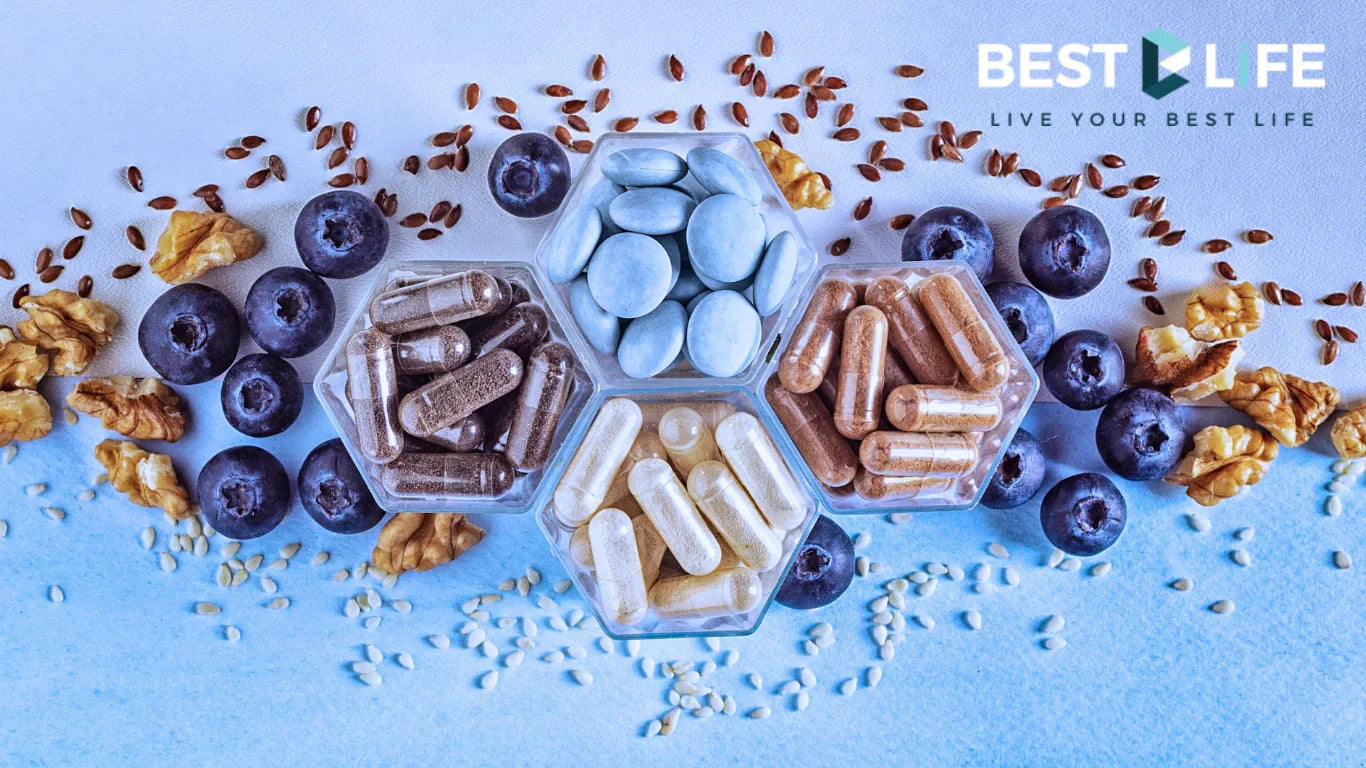7 Common Signs of Nutritional Deficiencies in Older Adults and How to Fix Them
Are you experiencing unexplained symptoms like thinning hair, joint pain, or swelling in your feet? As we age, our bodies often need more support to stay healthy and vibrant. Nutritional deficiencies are a common but overlooked cause of many age-related issues.
In this blog post, we’ll explore 7 common signs of nutritional deficiencies in older adults, what they mean, and how you can address them with simple dietary and lifestyle changes. Let’s dive in! But before we do...
If you're anything like me and you're in your 50's and starting to see changes that aren't necessarily so welcome - you're probably more prone to noticing this stuff. In this article we will be looking at diet as a means to manage these adverse effects - so I really want to make the point that exercise is just as important than anything else you might try. Exercise - movement - will do wonders for you - and if you're not doing it you need to be.
1. Ageing Spots: More Than Just Sun Damage
What it is: Flat, brown patches on the skin caused by sun exposure and oxidative stress.
Why it matters: Ageing spots are a common concern for older adults, but they can be managed with the right nutrients.
How to fix it:
-
Eat antioxidant-rich foods like nuts, seeds, and leafy greens.
-
Use sunscreen daily to prevent further damage.
-
Consider topical vitamin E oil for skin repair.
2. Thinning Hair: A Sign You’re Missing Key Nutrients
What it is: Gradual or sudden loss of hair density, often linked to nutrient deficiencies or hormonal changes.
Why it matters: Thinning hair can affect confidence and is a common issue for older adults.
How to fix it:
-
Include biotin-rich foods like eggs and nuts in your diet.
-
Add zinc sources like pumpkin seeds and legumes.
-
Manage stress through relaxation techniques like meditation.
3. Joint Pain: Is Your Diet Missing These Nutrients?
What it is: Discomfort, stiffness, or inflammation in the joints.
Why it matters: Joint pain is a top concern for older adults, but the right nutrients can help.
How to fix it:
-
Eat fatty fish like salmon for omega-3s.
-
Spend time in the sun for vitamin D.
-
Consider collagen supplements or bone broth for joint support.
4. Feeling Weak? Your Body Might Need a Boost
What it is: A lack of physical or mental energy, often accompanied by fatigue.
Why it matters: Weakness can make daily activities challenging for older adults.
How to fix it:
-
Eat protein-rich foods like meat, fish, and eggs.
-
Include magnesium-rich foods like leafy greens and nuts.
-
Consider a B12 supplement if you’re vegan or vegetarian.
5. Frequent Urination: A Hidden Sign of Imbalance
What it is: Needing to urinate more often than usual, sometimes with urgency.
Why it matters: Frequent urination can disrupt sleep and daily life for older adults.
How to fix it:
-
Reduce sugar and refined carb intake.
-
Eat potassium-rich foods like avocados and bananas.
-
Stay hydrated with water and electrolytes.
6. Vivid Dreams or Nightmares: Are You Stressed or Deficient?
What it is: Unusually intense or disturbing dreams that disrupt sleep.
Why it matters: Sleep quality often declines with age, affecting overall health.
How to fix it:
-
Eat vitamin B6-rich foods like poultry and bananas.
-
Practice stress-reduction techniques like deep breathing.
-
Establish a calming bedtime routine.
7. Swelling in the Feet or Lower Limbs: A Fluid Balance Issue
What it is: Accumulation of fluid in the feet, ankles, or legs.
Why it matters: Swelling is a common issue for older adults, often linked to circulation problems.
How to fix it:
-
Eat potassium and magnesium-rich foods like leafy greens and nuts.
-
Elevate your feet when resting.
-
Stay active to improve circulation.
Quick Fixes for Nutritional Deficiencies in Older Adults
Here’s a simple summary of what to eat and do for each symptom:
-
Ageing Spots: Nuts, seeds, leafy greens, and sunscreen.
-
Thinning Hair: Eggs, nuts, red meat, and stress management.
-
Joint Pain: Fatty fish, sunlight, and collagen supplements.
-
Feeling Weak: Meat, fish, eggs, and B12/magnesium supplements.
-
Frequent Urination: Avocados, bananas, and reduced sugar intake.
-
Vivid Dreams: Poultry, fish, bananas, and stress reduction.
-
Swelling: Leafy greens, nuts, and regular exercise.
Conclusion
Nutritional deficiencies can manifest in many ways, from physical symptoms like thinning hair and joint pain to less obvious signs like vivid dreams or frequent urination. For older adults, addressing these deficiencies is key to maintaining energy, mobility, and overall well-being.
By listening to your body and giving it the nutrients it needs, you can feel your best at any age. If symptoms persist, don’t hesitate to consult a healthcare professional for personalized advice.
Call to Action
Found this post helpful? Share it with friends and family to spread the word about the importance of good nutrition for older adults! And if you have any questions or experiences to share, leave a comment below. Let’s work together to stay healthy and vibrant as we age! 😊




Leave a comment
All comments are moderated before being published.
This site is protected by hCaptcha and the hCaptcha Privacy Policy and Terms of Service apply.